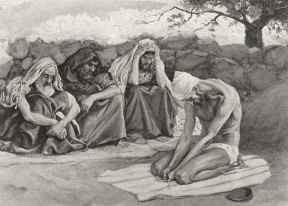“A man’s gotta know his limitations” says Harry Callahan. The  admonition makes sense as one crosses the fine line between competence to incompetence. Dirty Harry remarks frequently about the incompetence he sees in his superiors making for some great one-liners.
admonition makes sense as one crosses the fine line between competence to incompetence. Dirty Harry remarks frequently about the incompetence he sees in his superiors making for some great one-liners.
Sometimes people are advanced up the ladder of success only to find that their previous, stellar performance has little to do with the challenges they face in their new role. Known as the Peter Principle, they fail because sufficient consideration was not given to whether or not they were indeed competent for the demands of the advanced position.
Similarly, the Icarus Syndrome describes the super-competent person who exceeds expectations at every level and knows it, exhibiting a confidence, self-assurance and hubris that borders on narcissism. These people advance quickly without the necessary emotional and psychological discipline that empowers them to endure the stresses that come with added responsibilities. Like Icarus who fell to his death because he flew too closely to the sun, their failures can be cataclysmic.
Through education, life-experience, training and discipline it is so important to develop a wisdom that is able to examine one’s self, to discern between good and bad counsel and to keep praise and criticism in perspective. Stephen Covey’s 7 Habits for Highly Effective People offers a great model for proceeding through life with these reality checks based upon one’s values. A man does need to know his limitations but he must test them and, in many cases, exceed them.
SEEING BEYOND LIMITATIONS
At the other end of the spectrum is the motivational challenge to “Reach for the stars”. My inspiration for this article came when I happened to catch a recent commercial for a lumber store!
I loved the ingenuity of their presentation, taking a job that might be perceived as common, every-day work and catapulting it to a level of second-string astronaut that inspires, challenges and celebrates the value of the individual…the kind of person we’re looking for in our company. Great commercial!
CONCLUSION
Navigating through life requires the kinds of skills that are able to deal with limitations both from without one’s self as well as within. At other times opportunities arise that allow us to exceed limitations. Sometimes the most limiting of all limitations are those we create for ourselves; i.e., those little voices within that tell us we’re not good enough, not smart enough or not gifted enough.
The truth is that this inner battle is the locus for the power of the Gospel found in the first and second Beatitudes that form the basis for most recovery programs. In the face of a “Higher Power” who knows no limitations outside of the human heart we are immediately confronted by our own incompetence to save ourselves. The ultimate cosmic paradox rests in this observation by the apostle Paul: “Not that we are competent in ourselves to claim anything for ourselves, but our competence comes from God. He has made us competent….” (2 Corinthians 3:5-6).



 life and appreciate the world around us and within ourselves.
life and appreciate the world around us and within ourselves. everything “under the sun” and to uncover the secret to happiness and contentment (
everything “under the sun” and to uncover the secret to happiness and contentment ( Building a house that will last is based upon unyielding structural requirements that begin with the foundation. In a similar way, a happy home depends upon certain unyielding structural requirements, anchored upon a foundation of unconditional love, clear boundaries with freedom to explore and solid principles that will stand the test of time.
Building a house that will last is based upon unyielding structural requirements that begin with the foundation. In a similar way, a happy home depends upon certain unyielding structural requirements, anchored upon a foundation of unconditional love, clear boundaries with freedom to explore and solid principles that will stand the test of time. Psalm 88
Psalm 88 in a short period of time, his three friends joined him in the book of Job, chapter 2:11-13:
in a short period of time, his three friends joined him in the book of Job, chapter 2:11-13:

 I just read an article in Christianity Today entitled “
I just read an article in Christianity Today entitled “


